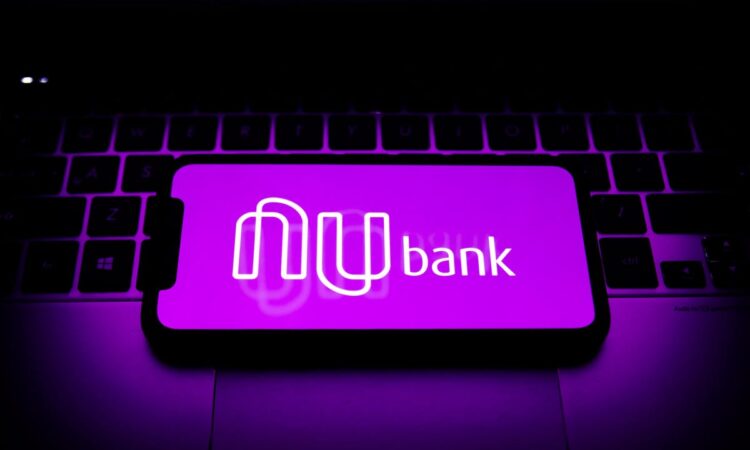
Nubank launches Nucoin
NurPhoto via Getty Images
Nubank has made headlines this week with the launch of its very own cryptocurrency, Nucoin. This move starkly contrasts with recent crypto bans from UK banks but could position the neobank to become a pioneer of next-generation banking. It is also likely to inspire other players in banking with a favorable view of cryptocurrencies.
Nucoin will be central to the bank’s loyalty program, offering a secure and safe gateway into the cryptocurrency space for its 70 million customers across Brazil, Mexico, and Colombia. This move by Nubank contrasts with recent announcements by UK incumbent banks, Nationwide and HSBC, which plan to restrict their customers’ ability to buy cryptocurrencies. Meanwhile, neobank Starling has gone one step further by banning all crypto transactions outright. The popularity of cryptocurrencies and NFTs is on the rise, with 21% of Americans reportedly owning cryptocurrency as of 2022. In addition, the emergence of B2B companies offering “crypto-as-a-service” is further driving this trend. As we look ahead to 2023, traditional and neobanks are faced with an important decision to make as they consider the potential advantages of offering cryptocurrency as a catalyst for their next-generation products and services. This year is a pivotal moment for the financial industry as it navigates the rapidly evolving world of digital assets.
Starling Bank Shuns While Others Tread Cautiously
Based on recent initiatives and announcements, banks’ attitudes toward cryptocurrency can be broadly classified into four categories:
- Crypto is a vehicle for financial crime
- Crypto is a means for gambling and speculation
- Certain products, namely stablecoins, can serve as a means of financial security
- Crypto can serve as a next-generation way to enhance customer loyalty and product innovation
Starling Bank seems to fall into the “financial crime” category, as it has imposed a blanket ban on all crypto transactions. In a tweet explaining its stance, the bank said “we consider crypto activity to be high-risk. We’ve decided to prevent all card payments to crypto merchants and implement further restrictions on outgoing and incoming transfers.
In contrast, HSBC and Nationwide appear to be in the “gambling and speculation” camp, as they have not imposed a complete ban on crypto transactions but have restricted transaction sizes and card types. Credit cards cannot be used to make payments to crypto exchanges, with daily limits imposed on debit card transactions.
Meanwhile, Australia & New Zealand Banking Group Limited (ANZ) and National Australia Bank (NAB) are taking a more progressive approach and believe cryptocurrency, namely stablecoins, could appeal to a handful of use cases, such as international payments. Both banks are launching stablecoins pegged to the Australian dollar in Australia. However, these stablecoins may have limited appeal to consumers, given that Australian consumers and businesses are not currently facing a highly devalued currency like Lebanon or Venezuela, where the demand for cryptocurrency and stablecoins is strong.
Nucoin, New Future?
Nubank falls into the final category. It will form the centerpiece of a loyalty program for 70 million customers across Brazil, Mexico, and Colombia. Nucoin looks safe and blander than speculative and exotic. The bank refers to it as a “token” before explaining that it can be a cryptocurrency. Customers can earn Nucoin through various means, including spending with Nubank cards and participating in the NuCommunity, with rewards including cashback and sweepstake tickets.
Nucoin has already made waves in the financial industry, and its medium to long-term ambitions have generated even more interest. According to Nubank, Nucoins will initially only be available within the Nubank ecosystem, sold in-app between Nubank customers. However, the company plans to expand the Nucoin Network to include other companies offering digital currencies in their loyalty programs. Nubank allows users to buy and sell a handful of cryptocurrencies within its app, and eventually, it could enable Nucoins to be swapped for other cryptocurrencies or redeemed for fiat. However, this has yet to be disclosed as part of the roadmap. There will be many in the industry watching the development of Nucoin closely.
Will Incumbents Miss Out?
Incumbent banks have been playing catch-up to neobanks when offering exceptional customer experiences, digital current accounts, fast and cheap payments, and card servicing. They’ve also been left behind in the mobile and micro-investing wave led by Robinhood, FreeTrade, and Trade Republic. A handful of banks are determined not to be left behind in the cryptocurrency revolution. Some, such as Nubank and Revolut, see this as a significant point of differentiation. Incumbent and neobanks must increasingly face a critical decision regarding their stance on cryptocurrencies. For those with a favorable view of cryptocurrency, the market is ripe for innovation.




